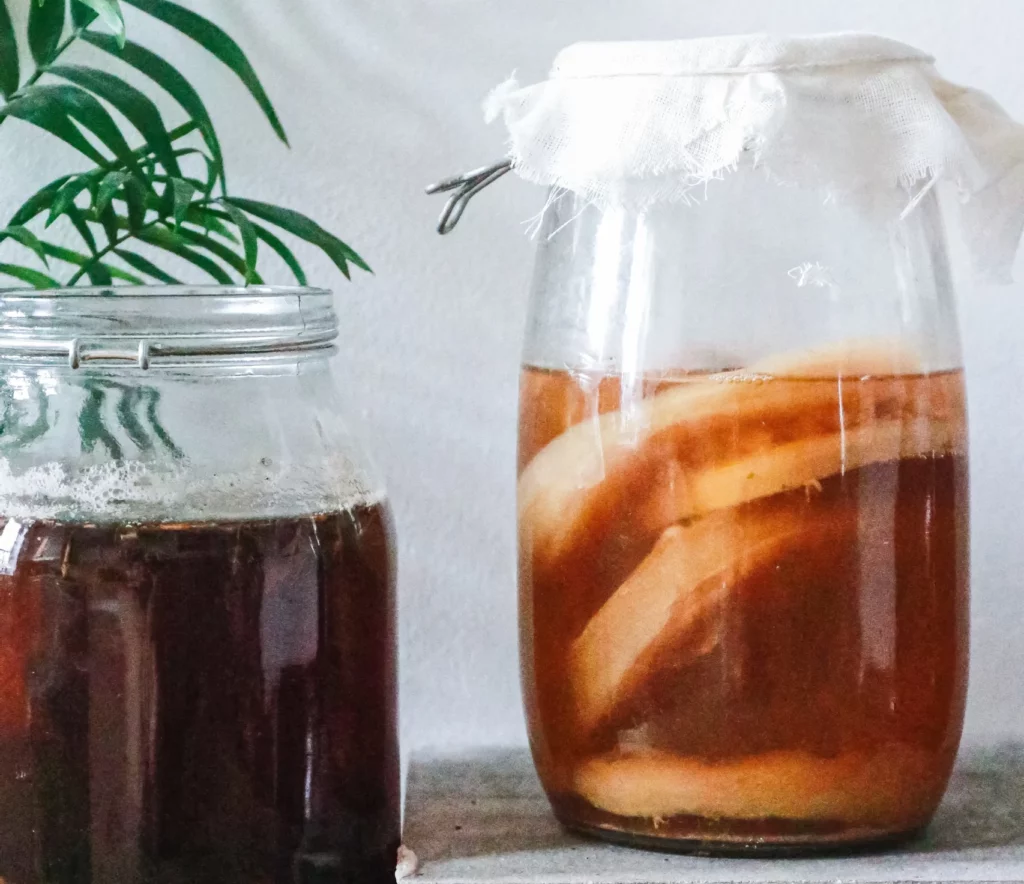Is It Safe to Drink Kombucha in Recovery?
Kombucha, a fermented tea beverage, has soared in popularity for its purported health benefits, from aiding digestion to acting as an antioxidant source.
However, if you’re in recovery from alcoholism, you might wonder whether this drink is safe for you.
The truth is, the answer is different for each individual, because each recovery journey is unique.
Here’s what to know and what to consider:
What’s in Kombucha?
Kombucha is fermented tea using a symbiotic culture of bacteria and yeast (SCOBY).
This process produces acetic acid, carbon dioxide, and a small amount of alcohol. Typical kombucha contains around 0.5% to 3% alcohol, which can vary depending on the fermentation process and ingredients used.
The Alcohol Factor
While the alcohol content in most kombuchas is low, it’s crucial to note that even trace amounts can be a trigger for some individuals in recovery.
Before choosing to drink kombucha, check the label for its alcohol content. Even so-called “non-alcoholic” kombuchas can contain up to 0.5% alcohol.
Being Honest About the Risk to Your Recovery
If you’re in recovery, self-awareness is key. You should honestly assess whether the trace amounts of alcohol in kombucha could serve as a trigger for you.
Are you drawn to the drink for its flavor, or is it the sensation tied to its alcohol content? Ignoring these questions could lead to unintended consequences on your path to recovery.
Talk to Your Sponsor
If you’re participating in the 12 steps, your sponsor will guide you in your recovery journey.
They’re someone who has been where you are and knows the challenges you face.
Discussing your thoughts about drinking kombucha with your sponsor can provide you with valuable advice tailored to your specific needs.
By speaking with your sponsor, you’re not just making a decision based on facts; you’re making a decision that aligns with your journey to sobriety.
So before you open that bottle of kombucha, call your sponsor. It’s a simple step, but it could be crucial in maintaining your path to recovery.
Things To Consider
- Individual Experience: Recovery is a unique process for everyone. Your sponsor can help you gauge how the alcohol in kombucha may affect you personally.
- Triggers and Cravings: Some people find that even a small amount of alcohol can trigger cravings or temptations to drink more. Your sponsor can help you assess whether kombucha might be a risk for you.
- Accountability: Talking to your sponsor keeps you accountable. This is a way to be honest with someone else, and more importantly, yourself, about your choices.
- Alternative Choices: If you decide that kombucha isn’t right for you, your sponsor may suggest other healthy, non-alcoholic beverages you can enjoy instead.
Diverse Opinions and Personal Stories
The recovery community is split on whether kombucha is safe for recovering alcoholics.
Some experts and individuals in recovery endorse it as a healthful option, while others steer clear due to its alcohol content.
Ultimately, your comfort and safety with kombucha should be a personal decision, potentially made in consultation with healthcare providers or support groups familiar with your recovery journey.
Guarding Your Recovery
Whether kombucha is safe for those recovering from alcoholism doesn’t have a one-size-fits-all answer.
If you’re considering adding kombucha to your diet, be honest about the potential risks and consult trusted sources for advice.
After all, every decision you make impacts your unique journey to well-being.





